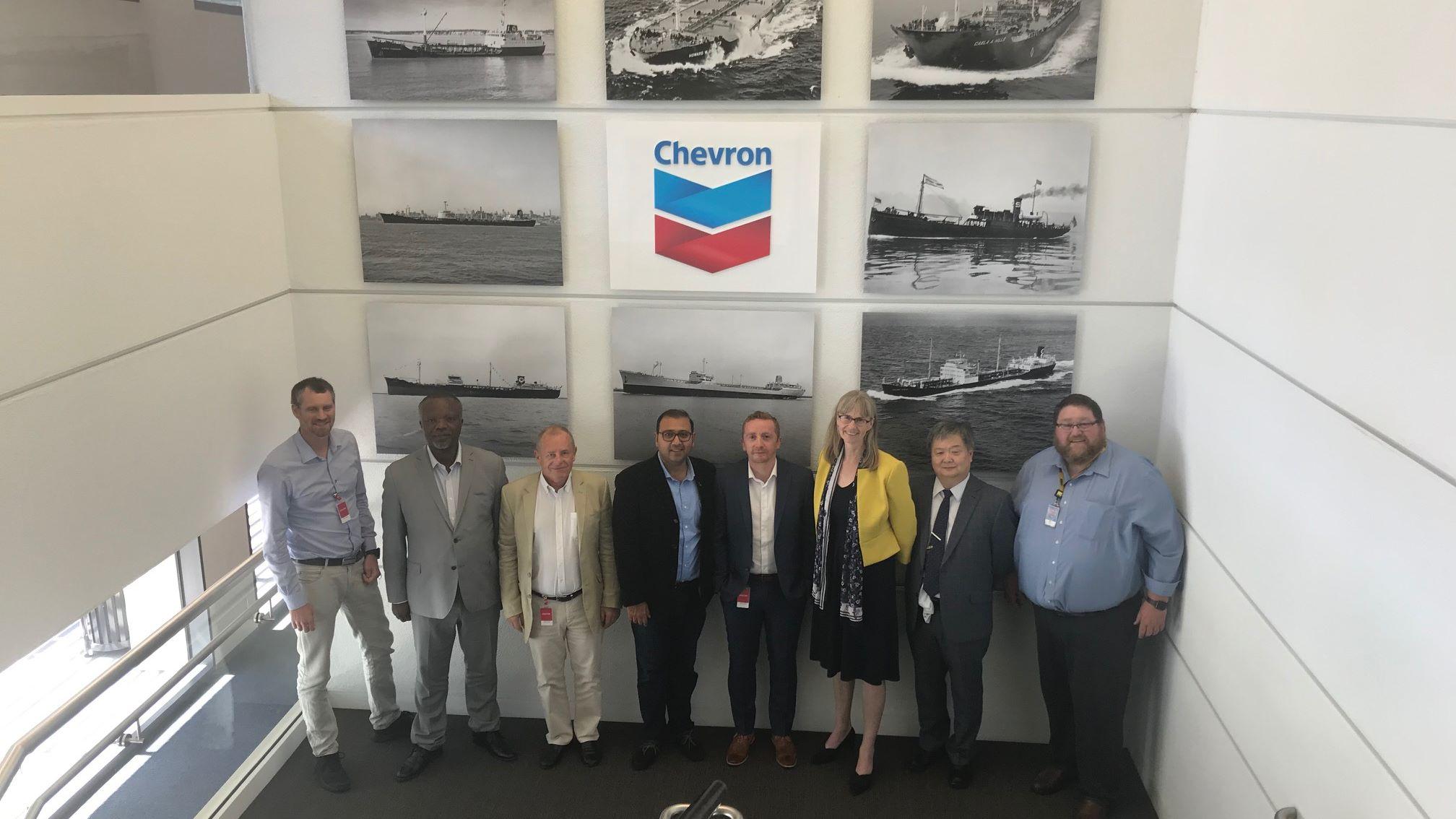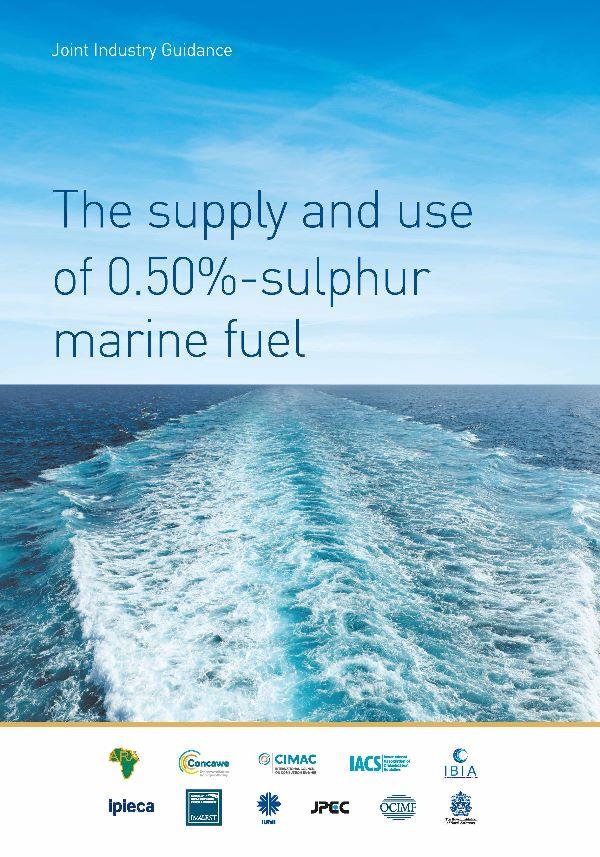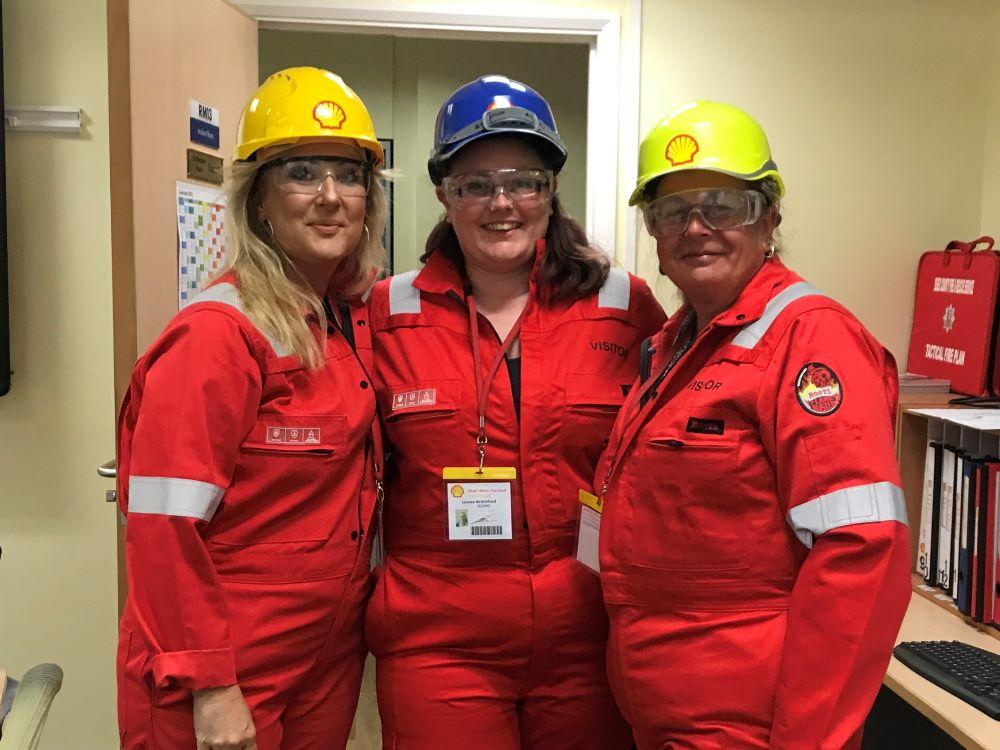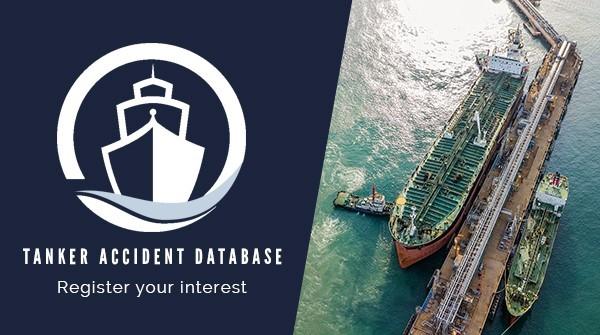"I’d like to say a big “thank you” to the various industry bodies that collaborated on the Joint Industry Workgroup Guidance on the Supply and Use of 0.5% Sulphur Marine Fuel that was published in August."
Director's Log
I hope that most of our readers in the northern hemisphere have been enjoying a period of Summer vacation.

Not for OCIMF I’m afraid, our Leadership Team have been busy planning the projects related to our recently approved strategy. We have six projects:
- Operational model for the new committee structure.
- Operational model for the secretariat organisation.
- Risks and opportunities.
- Membership criteria.
- Integration of programmes
- External collaborations.
These will kick off from the end September and will help roll out of the planned strategic changes. Delivery schedules are project specific, but we expect them all to be completed by the end of next year.
I’d like to say a big “thank you” to the various industry bodies that collaborated on the Joint Industry Workgroup Guidance on the Supply and Use of 0.5% Sulphur Marine Fuel that was published in August. Considering the number of organisations involved, getting to a final guide to publish was no mean feat. I believe this document will be a huge benefit to the industry in preparing for 2020.
Last, but not least, I want to congratulate and welcome our new members Alma Petroli, Chrysaor, IPLOM and Nayara Energy to OCIMF. These company applications were approved at ExCom in June and have now officially joined the team. We look forward to welcoming their representatives to various committees and working groups and maintaining close engagement for the overall benefit of the industry.
Wishing you a happy, healthy and safe September.

Rob Drysdale
Director OCIMF
Do you have news that you'd like to share with our readers? If so email
Tanker Accident Database
The Learning Lessons, Accidents, Statistics and Trends (LLAST) database, known as the Tanker Accident Database, provides an anonymous reporting tool for use by vessel owners and technical managers to document measurable accident data.
The aim is to collate anonymous tanker accident details which, over time, will allow for root cause analysis of tanker accidents, preventing the occurrence of repeat accidents and leading to further advances in maritime best practice and safety.
There has been a strong uptake in participants registering their interest by signing up to join a mailing list. Please take a moment to visit the Tanker Accident Database website and register your interest. Registered users will be alerted once the database goes live.
For more information contact Dave Wall, Senior Technical Advisor or Ricardo Martinez, Technical Adviser (Engineering).
Environment Sub-Committee

The newly established Environment Sub-Committee (ESC) met for the second time this year on 6 – 7 August in San Ramon, US.
The ESC agreed to develop an environmental strategy paper for OCIMF. The paper will define OCIMF’s ambition on the environment and high level positions on key environmental issues such as:
- Greenhouse gas emission reduction.
- Operational measures to improve energy efficiency.
- Effluent discharges – Inert Gas Systems (IGS).
- Volatile Organic Compounds, air pollutants and emissions at berth.
- Alternative fuels.
- Invasive species.
Contact Sam Megwa, OCIMF Deputy Director, for more information.
BSI releases new standard
OCIMF membership regularly engages with the British Standards Institute (BSI) and actively participates on key maritime works standards under revision via the CB/502 - Maritime works committee.
Rabinder Manku is the OCIMF representative in CB/502. Members of the Marine Structures and Civil Engineering Focus Group (MSCE FG) also carry out reviews of draft documents bringing operational experience to CB/502, since the committee is primarily comprises of experts in the civil engineering field. This work supports OCIMF’S focus on the interface with terminals inshore and onshore.
The BS 6349 series of standards provides guidance on the planning, design, construction and maintenance of maritime structures. BS 6349-2:2019 is titled Maritime Works: Code of practice for the design of quay walls, jetties and dolphins and was newly released in June 2019 after a major update of the previous 2010 publication.
Highlights include:
- Updating to reflect a better relationship with recently updated parts in the BS 6349 suite and Eurocodes.
- Greater linkage with OCIMF, SIGTTO, API and PIANC documents in terms of handling oil and gas products in the planning and risk assessment section.
- Major clean-up of the document in terms of actions and design recommendations for quay walls, jetties and dolphins.
- Updated of figures.
OCIMF continues its support of other maritime work standards still under revision or being considered for revision in the future. Part 1-1: Code of Practice for Planning and Design for Operations and Part 4: Code of Practice for Design of Fendering and Mooring Systems are two prime examples.
Contact Ricardo Martinez, OCIMF Technical Adviser (Engineering) with any questions.

New Joint Industry Guidance on the supply and use of 0.50% - sulphur marine fuel
The publication has been developed by OCIMF and other organisations in the shipping industry, the refining industry, bunker suppliers and standards organisations.
The publication provides guidance for stakeholders across the marine fuels and shipping industries, from fuel blenders and suppliers to end users. It presents the specific safety and operational issues relating to the supply and use of max. 0.50%-sulphur fuels, an overview of fuel quality principles, and the controls that should be put in place to ensure that safety issues are identified, prevented and/or mitigated. It addresses issues such as fuel compatibility, fuel stability, and fuel handling and storage, and contains a comprehensive review of existing operational factors that can affect safety. It does not address issues related to compliance with Flag State, Port State or IMO rules or guidelines, or alternative means of compliance (e.g. Exhaust Gas Cleaning Systems), and does not include a discussion of alternative fuels such as liquefied natural gas, hydrogen or methanol.
Key messages in the publication:
- Ensure fuel quality by ensuring that blend components are suitable for bunker fuel production, with particular attention being given to ensure that the final product is stable.
- Fuel suppliers and purchasers should provide adequate information to the ship concerning the fuel as supplied to enable ship crew to identify and manage potential safety and operational issues associated with certain fuel properties and characteristics.
- Fuel characteristics are expected to vary considerably between bunkers. The ship’s crew will need to adopt a more proactive approach to fuel management. They will need to know the fuel characteristics as loaded and be able to respond to the requirements, especially in terms of on board temperature requirements and any commingling.
- While compatibility between fuels from different supply sources can be a concern in today’s environment, assessing the compatibility of 0.50%-sulphur fuels from different sources will be key. To the extent possible, fuel should be loaded into an empty tank. The available space for new bunkers to be loaded should be taken as the capacity of the empty tanks in order to avoid commingling on loading.
- Ship operators and fuel suppliers should review operational practices to allow sufficient time to test for compatibility between existing and proposed bunker fuel delivery, especially if no “empty” dedicated storage tank is available on the ship.
For more information please contact us.
Marine Structures and Civil Engineering Focus Group
Eighth meeting: 25 July, London, UK (virtual teleconference)
The committee reviewed:
- Alternative mooring technology equivalency criteria guidance work.
- Proposed review of jetty maintenance and inspection guide review.
- British Standards Institute (BSI) and PIANC industry updates.
Next meeting: Spring 2019, TBC
Registration for the OCIMF Asia Pacific Regional Marine Forum is now open!
It will be held in Shanghai on 7 November.
Details on speakers and agenda to come - watch this space.
The event will be held at the Grand Kempinski Hotel Shanghai in Shanghai, China. To reserve you spot register below.
Register for the Asia Pacific Regional Marine Forum
OCIMF/Shell Ship Visit

Staff from OCIMF were invited by Shell to go on a ship visit in May. The Sabetta, managed by Angloeastern, was discharging at Shellhaven.
Thank you to Puneet Singhal from Shell for helping to make arrangements, and for the Captain of Sabetta and his crew for welcoming our team onboard
BP 'Welcome' to Shipping session

A few OCIMF staff attended a recent BP 'Welcome to Shipping' meet and greet session in the BP Sunbury office. Thank you to Karen Troup at BP for enabling this to happen.


